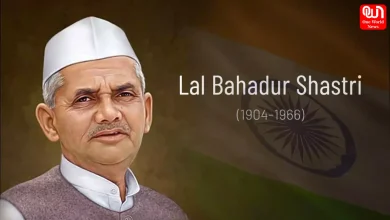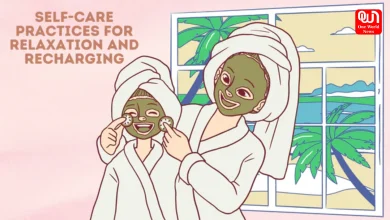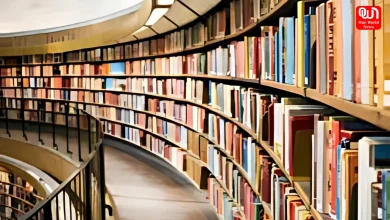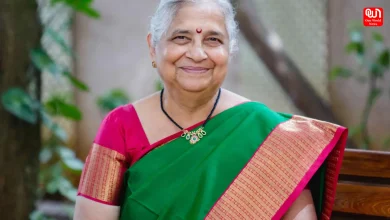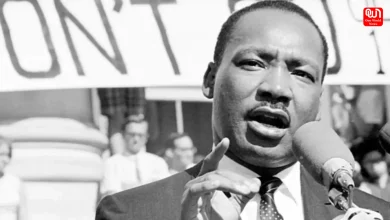4th Delhi Literature Festival: Day 3

The first session for the last day of the Delhi Literature Festival has Aditya Sinha as the moderator and the writer Shujoy Dutta. Aditya has been a journalist for three decades and has also co-authored certain books.

Aditya Sinha
Shujoy Dutta is the writer of the book ‘Like a Pinprick to the heart’. The book has been published by Speaking Tiger. Shujoy has studied Philosophy and during his college days he was very keen on becoming a professor. He later joined advertising and took a break seven years ago and stared writing the book in 2007. It was in 2013 that he actually gave full time to the book. He also wrote the ESPN school quiz in 2000. Shujoy believes that quizzing is good. He also feels that until “you start writing you don’t know what alchemy you are consuming.” Shujoy also quoted Raymond Chandler in his talk.

LtR Aditya Sinha & Shujoy Dutta
Aditya Sihna said that he read Shujoy’s book before Christmas and thoroughly enjoyed it. He appreciated the book while saying that it was ‘Well written and well edited”. The book revolves around Anando Sen, who is the main character and his family of psychics.
To the delight of the audience, Shujoy read an expert from his book. He candidly recalled his wife being as the first reader.
Aditya was all praises for the book and called it a high minded commercial fiction.
Shujoy also had a message for aspiring writers- “Read a lot.” He also suggested that one should not only read what one is writing about, but many different things as well. “All the clichés are true”, said Shujoy. He also asked aspiring writers to set targets and keep writing. The practical aspect of wanting to become a writer is that “You will get rejected”.
Shujoy also revealed that he got plenty of rejections for his book. Shujoy went on to mention the work that had gone into writing the book and his real life familiarity with psychics and the cities in which the story was based. The session ended with Shujoy giving the people a feel of his book and reading out the first page of his book for all.
The Honest Season with Neelima Kota
Today was the last day of your apka apna 4th Literature Festival and the second session of Lit Fest was addressed by Neelima Kota, who remained political journalist for almost two decades.

Neelima Kota
He has recently got her book published named, The Honest Season. Talking about her book , she said my book is based on the life of a young woman journalist. And she has thrown light on the life of a female journalist and what all kind of problems she faces in the field.
Shujoy Dutta straight from the heart!
Shujoy Dutta, who has recently turned into a writer addressed 4 Literature Festival on the last day.
Shujoy Dutta did a Masters in Philosophy from St. Stephens College.
Despite winning advertising as both creative and then a strategist, he felt something was missing in his life. So, he decided to wear writer’s cap.

Shujoy Dutta
He currently lives in Gurgaon with his lovely wife and a son.
He stepped into writing in year 2k13. Named Like a pinprick to the heart.
He shared his way of dealing with a writers block. He said “Lot of drinking and hanging out with friends is the best way to get rid of writer’s block.”
Blogs vs Books in the flash age
The much looked forward to session on books vs blogs in the flash fiction age had Vikas Swarup, Writer and Diplomat and author of the famous book Q & A, Anna MM Vetticad, Indian film critic and journalist and Yaahodhara Lal, IIM graduate with 12 years of FMCG experience and author of books like ‘Just Married’. There was a surprise panelist also – Ms Rachna Sharma. The session was moderated by Dilip Cherian.

Yaahodhara Lal spoke about how she started with her blog ‘why on Earth not’ in 2006. Her sole purpose to start a blog then was to get connected with writing. However, she now greatly credits her blogging for the novels she went on to write.

Anna MM Vetticad started her blog as an experiment if people would even read her. Not being tech savvy herself, she remember her sister setting up the page views monitor for her and thus began the journey of blogging and today her Friday reviews of movies are eagerly awaited on the Internet. ” Blogs are a place of great freedom “, Anna says.
One of the major plus of blogs, Yashodhara says, is immediate engagement with the readers and the reviews greatly help in self improvement.
Vikas Swarup described books vs blogs as the parable between leisure meals and fast food.
“Beauty of the written word is you are the painter as opposed to movies. “, says Anna. She wishes to enjoy the written word.

The session ended on the note that though blogs remain superior to books in the sense that bloggers have more freedom and yet the choice to exercise this power is always upto the blogger.
Book discussion by William Dalrymple
One of the most prominent authors of history, William Dalrymple today addressed 4th Delhi Lit fest.
The session was attended by the youth gathered at the venue and was full of history of Afghanistan. He talked about the situation of Afghanistan and about the problems faced by Afghans.

William Dalrymple
His book Battle for Afghanistan was released in year 2012.
Talking about writing he said “Writing travel books were more difficult than writing history books.”
‘The Idea of India’
Fourth session of Delhi Literature Festival was addressed by Amar Singh, former politician, Tarun Vijay,author as well as politician from Bhartiya Janata Party and Nadeem Asgar, Journalist at Times of India.

Former Minister Amar Singh Nadeem Asgar & Tarun Vijay
Session was revolving around ‘The idea of India’. Tarun Vijay says,its our tradition to keep name of our children in Sanskrit language.
Amar Singh spoke in Hindi throughout the session, currently he is not working with any political party.
Nadeem Asgar, Journalist at TOI also asked why idea of India has become part of history, why it is not in our present and future?

Former Minister Amar Singh
Tarun Vijay actually didn’t agreed with Nadeem’s question of history, he replied that Idea Of India is not in our past, but it is what we are discussing right now. He said”Matbhed manbhed main na badlo.”
Amar Singh and Tarun Vijay know each other from last many years.

Tarun Vijay
Amar Singh said that Idea of India is not dead but is injured. Tarun says Police reform, military should be more strong, elimination of donations are some necessary steps to develop India.
Mythological and Historical Fiction in India
The authors candidly recalled the shows they love. And talked about mythological fiction. Talked about, How similar are mythological fiction and historical fiction.”
A lot of history in India is a myth anyway”, said Vikas Singh. “Mythological and historical fiction are quite similar,but, at the same time are poles apart” said Suhail Mathur.
Discussion about Rajput, Mahabharata, Ramayana took a centre place. The fallacies of what we have been told was also talked about. “If you are writing about something you like, it will not really be a research”, said Mathur “Good research is the crux of writing a good book” he further added.

Ancient is always more exotic.
Doyle showed the audience the actual Mahabharata and awed them with the vastness of it. He uses science to explain mythology. Mathur discussed his latest book and the session ended on high note.
The fifth session of last day of 4th Delhi Lit fest with Munnawar Rana
The fifth session of last day of 4th Delhi Lit fest saw Munnawar Rana, one of the most popular modern Hindi and Urdu poet in conversation with Rama Pandey, famous writer, producer and actor.
Rama Pandey recites Munnawar Rana’s most famous and widely-read poetry “Ma” to begin the session. This poem expresses a child’s love for mother and celebrates motherhood in the most enchanting manner. Woven with words, emotions, expressions and rhythm “Ma” certainly deserves all the love and appreciation.
Munnawar Rana presents some of his very beautifully written gazals and the evening Lit up with applauds and appreciation.
“हमने एक शाम चौराहो पर सजा रखी है
शर्त लोगो ने हवाओं से लगा रखी है
हम भी अंजाम की परवाह नही करते हमने जान हथेली पर सजा रखी है।”
Rana congratulates the audience for being a part of such a culturally rich festival and shares some humorous experiences from his student life. He explains how impractical it sometimes seems to a young reader to relate to romantic poetry. Moving on Munnawar Rana justifies his portrayal of mother as beloved by saying that he really wanted to break the conventional Urdu poetry which had a lot of mention of beloved and her physical appearance. He shares that he decided to portray his mother as his beloved which invited a lot of criticism back then.
“लिपट जाता हूँ मैं माँ से और मौसी शर्माती है
मैं उर्दू में ग़ज़ल कहता हूँ पर हिन्दी मुस्कराती है
उछलते खेलते बचपन मे बेटा ढूँढती होगी
तभी तो देखकर पोते को दादी मुस्कुराती है
लबो पे उसके बददुआ नही होती
बस एक माँ है जो मुझसे खफा नही होती
मैं एक फ़कीर के होंठो की मुस्कुराहट हूँ
किसी से भी मेरी कीमत अदा नही होती
धुँआ उगलती हुई गाड़ीया पकड़ते है
जो आग उगलते है उनको सज़ा नही होती।”
Munnawar Rana describes the kind of relationship that Hindi and Urdu shares with simple yet deep lines:-
‘सगी बहनो का रिश्ता है जो उर्दू ओर हिन्दी मे
वो दुनियां की किसी ओर जुबानों में नही मिलता।”
Munnawar Rana left the audience spellbound with his breathtaking poetry on mother. He truly present mother as a true lover as he believe “ma se behtar koi mehbooba nahi.”
He believe that Urdu is not just a language but a culture that makes us more civilized in many ways. And the huge gathering of intrigued audience certainly proves how influential, enthralling and popular Urdu poetry and poets are in an era where the lowering readership of Urdu and Hindi are of a concern to almost everyone.
Picture Credits : Kuldeep Pundhir & Ravi Ranjan, OneWorldNews

